Low blood calcium, osteoporosis, and numbness in the limbs are issues you may encounter when your body is deficient in calcium. Our bodies require calcium for development but cannot synthesize it on their own; it must be obtained from external food sources. So, what should you eat when you are low on calcium?
What diseases are caused by calcium deficiency?
Before we discuss what to eat when calcium deficient, let’s explore what diseases can arise from a lack of calcium.
When blood calcium levels are low, the body will draw on calcium reserves stored in the bones, decreasing the calcium content in the bones. This can easily lead to osteoporosis in adults and the elderly. The characteristic symptoms include easily fractured bones and an increased risk of falls. Calcium deficiency can also cause rickets in children, preventing them from reaching their maximum height.
Moreover, a decrease in blood calcium levels can also occur due to decreased parathyroid hormone, potentially leading to common diseases in older age such as hypertension, arteriosclerosis, diabetes, neurodegenerative diseases, malignancies, and joint degeneration.
Low blood calcium can affect many organs and lead to symptoms such as: numbness around the mouth, tingling in the hands and feet, muscle spasms. More severe cases may result in seizures, depression, congestive heart failure, irregular heartbeat, and even coma.
According to Dr. Vo Khac Khoi Nguyen, Orthopedic Specialist at Vinmec Central Park International General Hospital, our bodies require calcium, but cannot synthesize it themselves; it must be supplemented externally. Over time, low calcium levels can harm the body, increasing the risk of osteoporosis, diabetes, neurological disorders, and cardiovascular diseases.
Furthermore, calcium deficiency can also lead to digestive diseases. Severe calcium deficiency can cause symptoms such as tingling in the fingers, muscle spasms, and irregular heartbeat.
What should you eat when calcium deficient?
If you know “what to eat to increase calcium?” it will help improve this condition effectively.
So, “what foods are high in calcium?” – the answer is: Milk and cheese; Nuts; Yogurt; Various legumes; Young soybeans and tofu; Amaranth greens; Whey protein…
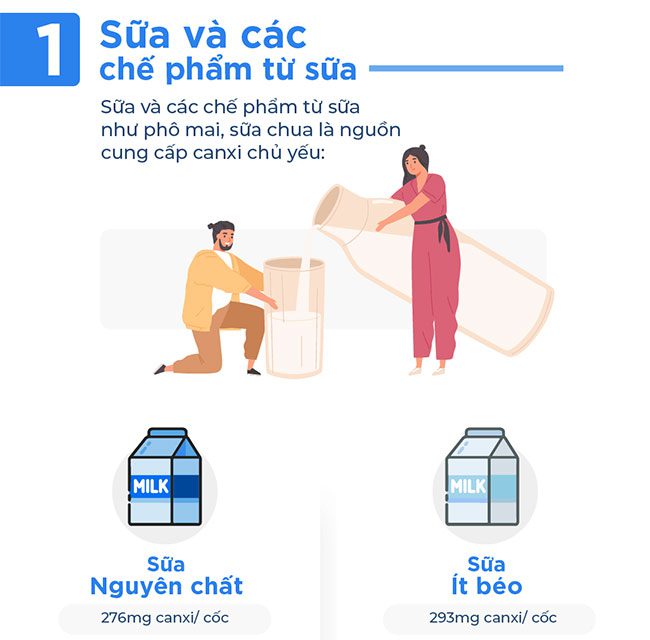
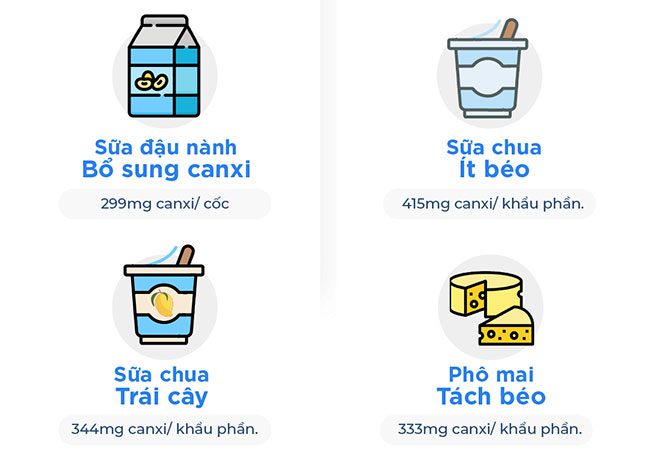
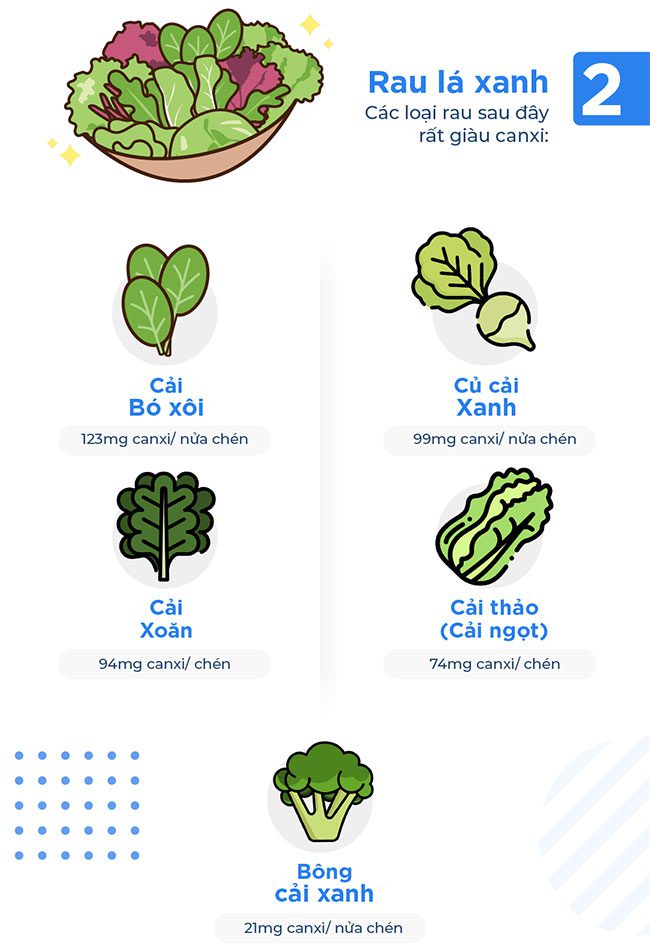
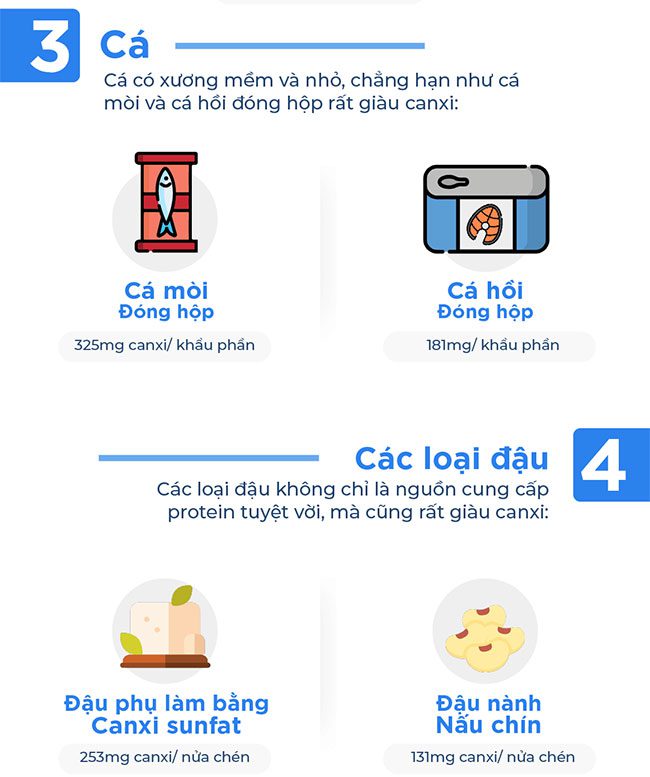
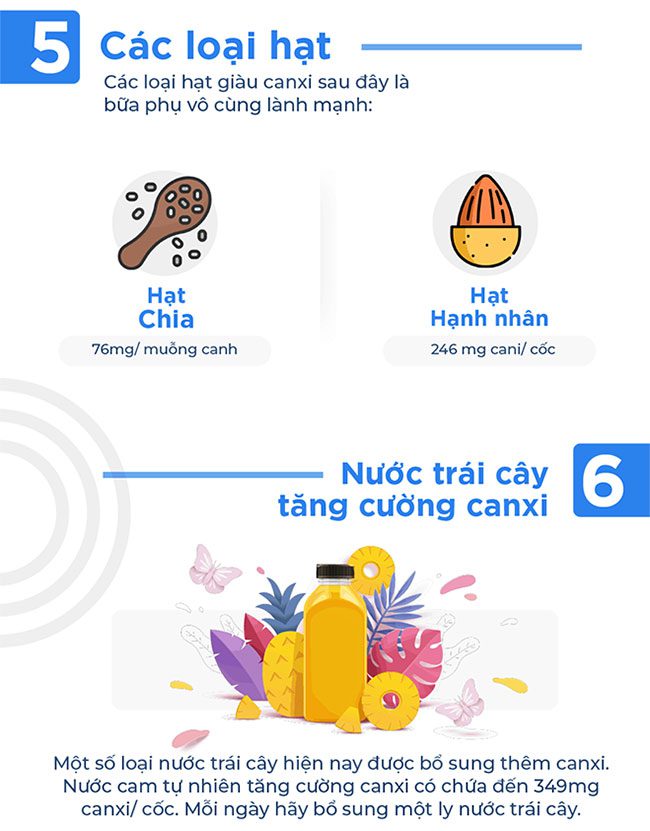
Calcium-rich foods.
Considerations when supplementing calcium into the body
After learning what to eat when calcium deficient, you should also keep in mind the following points to supplement calcium correctly:
- Doctors recommend meeting your daily calcium needs through healthy food sources and only using low-dose calcium supplements to compensate for deficiencies when necessary. Calcium requirements vary by age, so it is advisable to check your deficiency levels before taking any calcium supplements.
- Your body absorbs calcium from food better than from supplements.
- High-dose calcium supplements may increase the risk of kidney stones and heart disease.
- Maintain a healthy, varied, and balanced diet. Avoid overconsumption of any single type of food.
7 signs you may be calcium deficient
The number 1 calcium-rich food isn’t milk, you will be surprised!
Top 5 vegetables richer in calcium than milk, add daily to prevent osteoporosis



















































